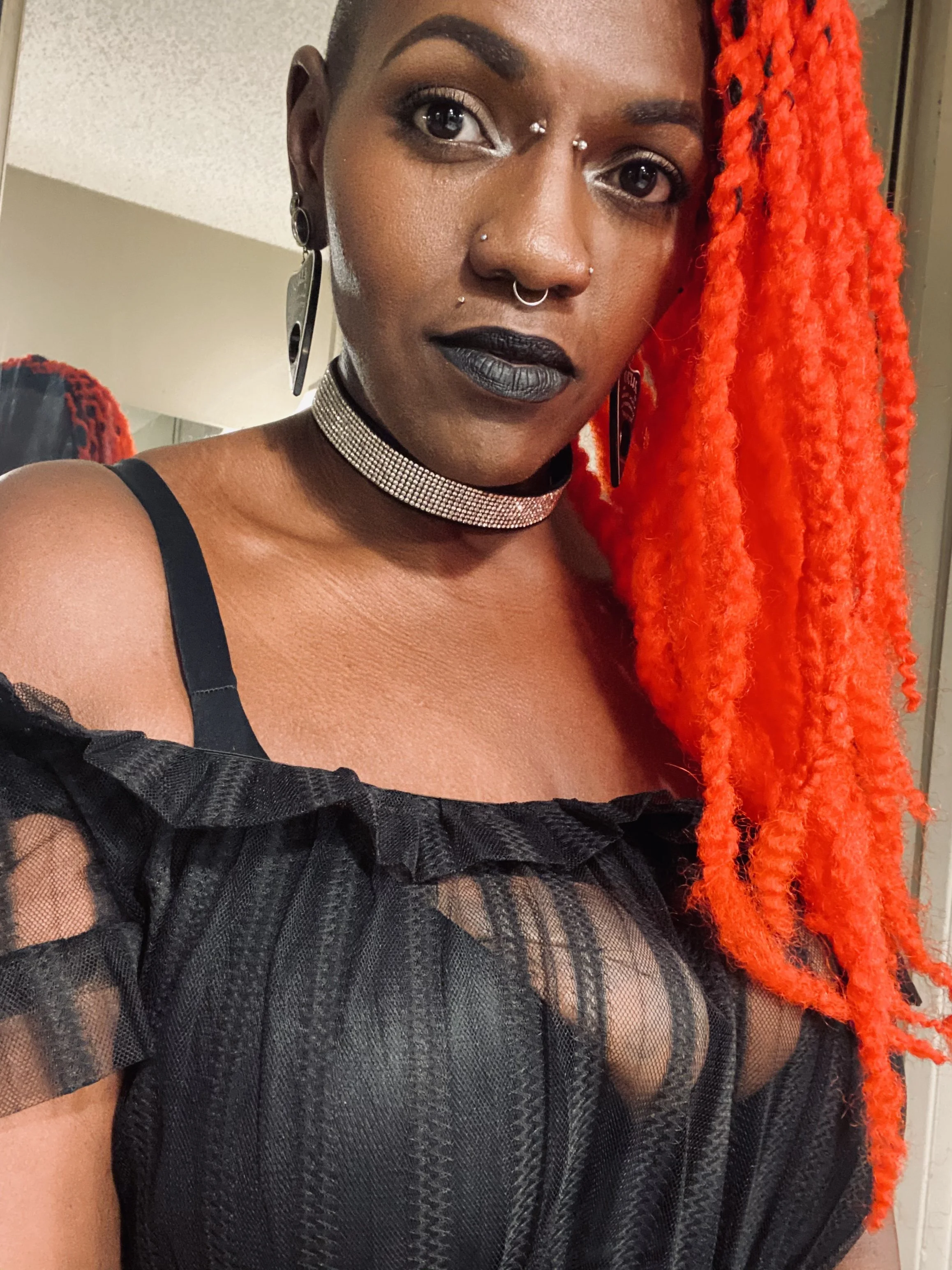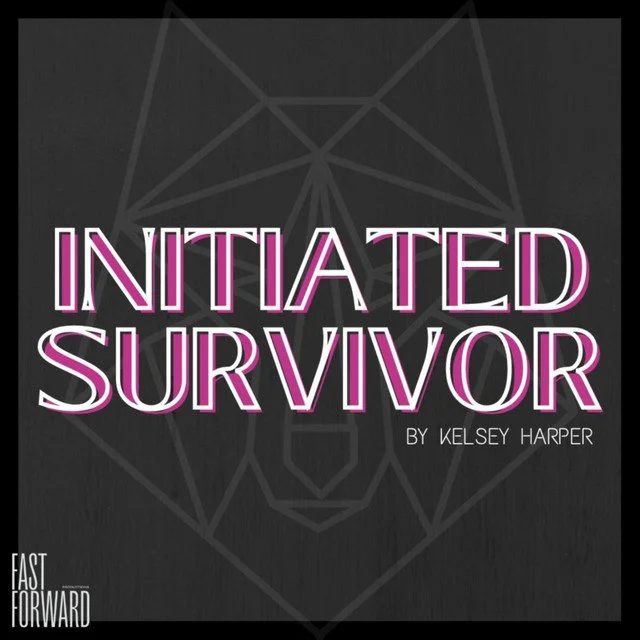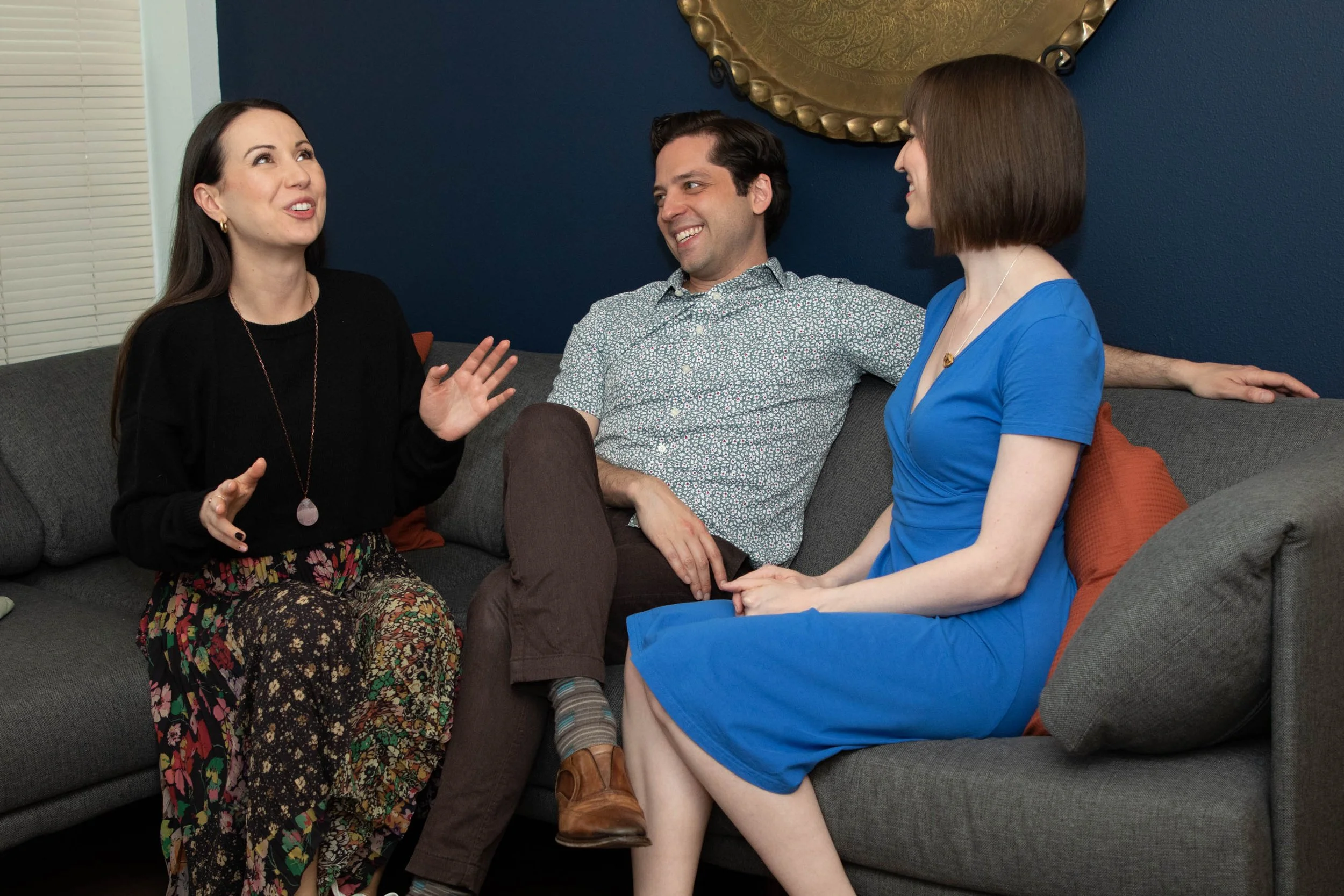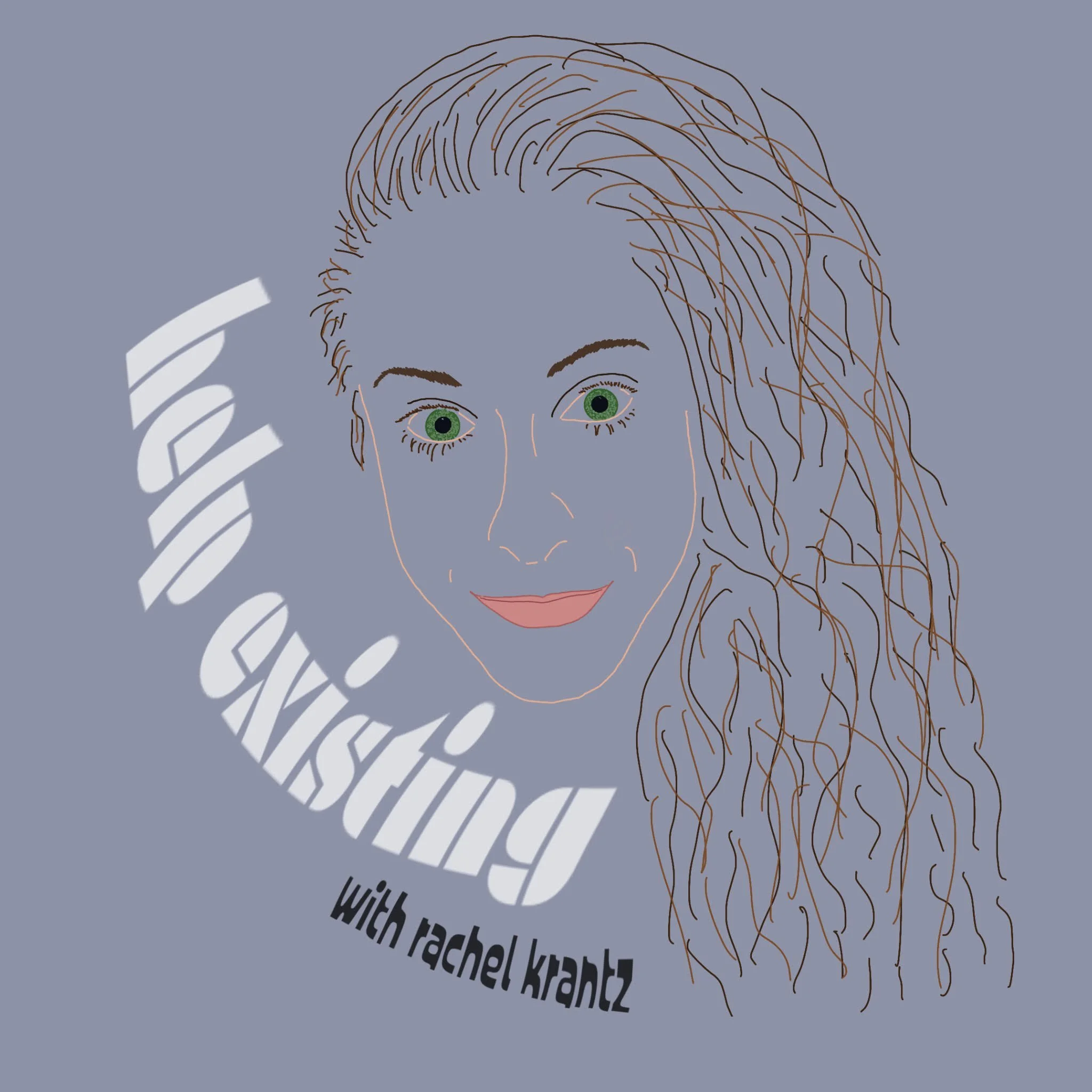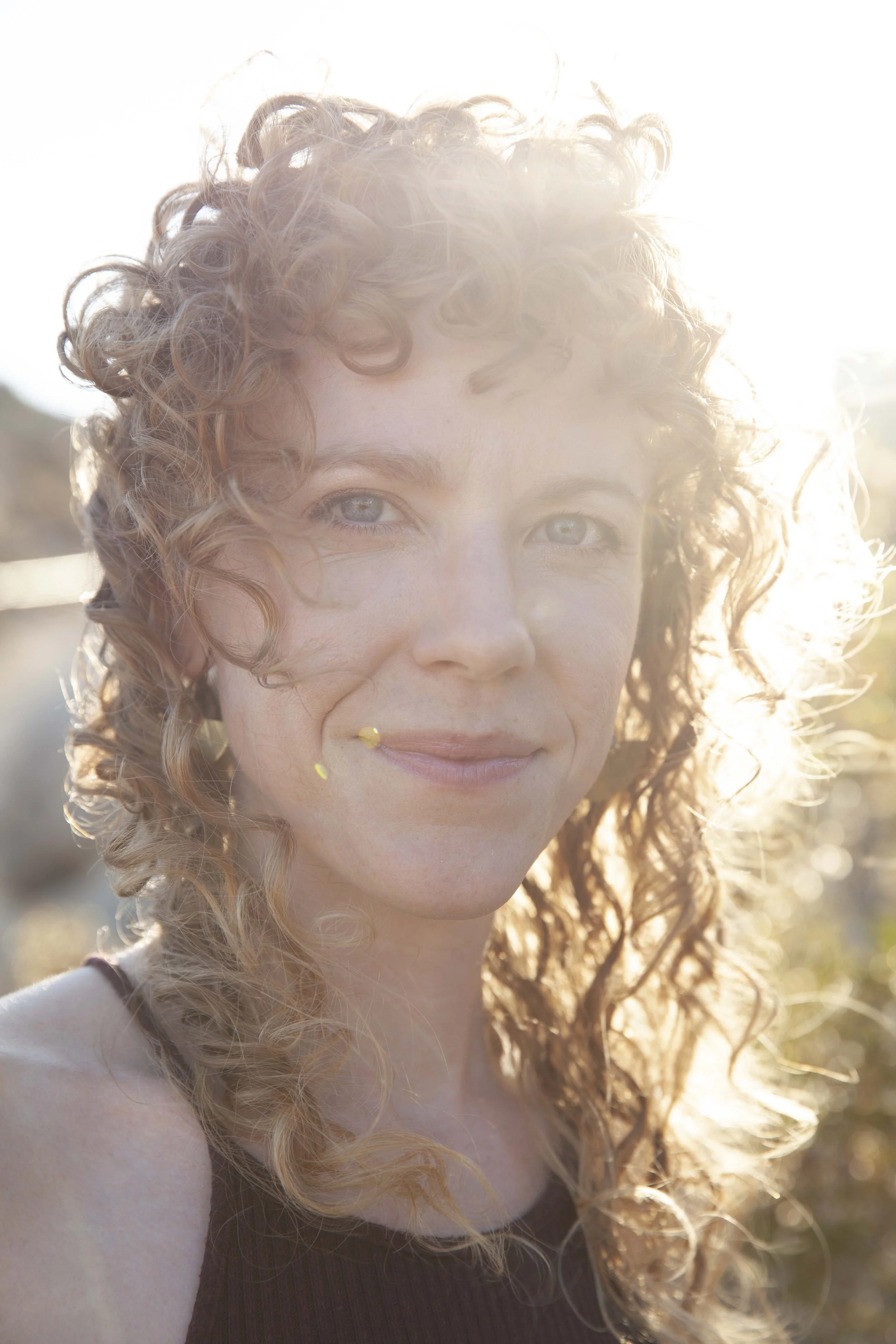SUBSCRIBE ON YOUR FAVORITE LISTENING PLATFORM
449 - When Life Demands Get in the Way of Love
This week we're taking some time to explore what happens when life's demands and outside stressors take a toll on even solid relationships. Things like busy schedules, financial woes, health issues, or other obligations can absolutely limit the time and energy you have for a relationship. We’ll be discussing strategies for collaborating through life’s ups and downs, keeping communication strong, getting creative with quality time, and more in today's episode.
448 - A Polyamory Devotional: Conversation with Evita Sawyers
Today we're rejoined by Evita Sawyers, who was last on the show back on episode 310. Evita is back to talk about her new book, "A Polyamory Devotional: 365 Daily Reflections for the Consensually Nonmonogamous."
Evita “Lavitaloca” Sawyers is a non-monogamy coach, speaker, and educator. Creator of “Today’s Polyamory Reminder”. Her approach is both frank yet empathetic and she is appreciated for her vulnerable openness about her own challenges in non-monogamy and helping others to grow.
Check out her book on Amazon or at Barnes and Noble!
447 - De-Escalation to Re-Escalation: Listener Q&A With Amanda Katherine
Today's episode is another Q&A, this time with Amanda Katherine from the Live Your F*ck Yes Life.
Amanda Katherine (she/they) — — is on a mission to help you face your fears, speak your truth and get you one step closer to living your f*ck yes life.
She has worked as a trauma informed coach, writer and facilitator since 2016 and as an artist, actor and storyteller for the better part of two decades. In 2018, they launched their podcast, Live Your F*ck Yes Life — the space to be for conscious conversations and candid shares around shit nobody really fcking talks about. In 2019, she shared her journey of navigating a preventative double mastectomy at the age of 27 in her self published book, I Chopped Off My Tits. And she’s spent the last few years facilitating and supporting queer folks and recovering people pleasers through her Live Your F*ck Yes Life events & workshops and 1:1 coaching around all things relationship anarchy, non monogamy, coming out later in life, demisexuality, grief and beyond.
Amanda is going to help us tackle some of our listener questions today. If you want your question answered on a future Q&A episode, consider joining our Patreon subscribers!
446 - Multiamory Presents: Navigating Abuse as a Non-Monogamous Person (Dedeker's Interview on Initiated Survivor)
Today we have a special episode highlighting an interview Dedeker did on the podcast Initiated Survivor, hosted by Kelsey Harper. Kelsey is a clinical psychologist and a survivor of sexual violence, and on her show she speaks directly with other survivors to hear their stories and offer practical skills for reclaiming their lives. Dedeker shares her experience with intimate partner violence within a non-monogamous context, since there are very few (if any) resources for survivors of violence that center queer people or non-monogamous people.
If you enjoyed this episode, go check out the rest of Initiated Survivor!
445 - Yes, Some People Need Drama
Today we're diving deep into the world of drama! Have you ever met someone who just seems to thrive on it? Or maybe you've seen a bit of that drama-lover in yourself? We're going to be talking about why some of us need drama in our lives (there's science behind it!), and discussing some of the behaviors and whys behind a need for drama.
444 - Assert Yourself Without Being an Asshole
Today we're talking about the five different communication styles in order to help us identify some of the healthy and unhealthy ways we might be expressing ourselves. If we can learn to assert ourselves in a healthy, respectful way, it can improve the quality of our relationships, along with overall wellbeing and happiness. We'll go over some tools and techniques we can use to start improving our quality of communication.
443 - Why Aren't You Being Fair? Exploring Aggressive Fairness in Polyamory
Today we're talking about aggressive fairness in non-monogamy. We all want equitable relationships, but in a relationship style as fluid as non-monogamy there is often more to consider than simple fairness. We'll be exploring what aggressive fairness means and looks like, discuss what fair means for a relationship (non-monogamous and monogamous), and talk about some helpful ways you can find solutions to the questions around equity and fairness.
442 - Do You Trust Your Partner With Your Emotions?
Today we're discussing emotional safety and how our close relationships can provide a safe and comforting way to enhance our positive emotions and regulate our negative ones. Unfortunately, many relationships are lacking the feeling of safety and support necessary to facilitate honest emotional expression. We are going to look at a couple recent research questionnaires that set out to measure these qualities of our relationships and see how we can use them to improve our own romantic and platonic relationships.
441 - Multiamory Presents: The Art of Boundaries (Dedeker's Interview on Help Existing)
This week we're highlighting an interview Dedeker did on Rachel Krantz's show, Help Existing. Rachel is also the author of Open: An Uncensored Memoir of Love, Liberation, and Non-Monogamy. Rachel and Dedeker have a great conversation about boundaries, covering topics like, How do you figure out what your boundaries are? How should you go about communicating boundaries in a way that is both firm and compassionate? How can you remain flexible and open to change without having porous boundaries? Do the same strategies apply to both familial and romantic relationships?
Make sure you check out more of Rachel's show!
440 - We Have All Violated Consent - Listener Q&A with Kitty Stryker Pt 2
We're continuing our Q&A episode today with guest Kitty Stryker. Kitty has been working on defining and creating a consent culture for over 13 years through her writing, workshops, and website consentculture.com. She's the editor of "Ask: Building Consent Culture," author of "Ask Yourself: The Consent Culture Workbook," and is especially interested in bringing conversations about consent out of the bedroom into everyday life. In her copious free time, Kitty works as a street medic for direct actions, plays Dungeons and Dragons, volunteers at the local animal shelter, and cares for her two cats. She identifies as queer, asexual, sober, anarchist, and femme.
439 - We Have All Violated Consent - Listener Q&A with Kitty Stryker Pt 1
Today we have a special guest who has been on our show before! Kitty Stryker has been working on defining and creating a consent culture for over 13 years through her writing, workshops, and website consentculture.com. She's the editor of "Ask: Building Consent Culture," author of "Ask Yourself: The Consent Culture Workbook," and is especially interested in bringing conversations about consent out of the bedroom into everyday life. In her copious free time, Kitty works as a street medic for direct actions, plays Dungeons and Dragons, volunteers at the local animal shelter, and cares for her two cats. She identifies as queer, asexual, sober, anarchist, and femme.
Kitty joins us today to help answer some of our listener questions in another Q&A episode.
438 - Aromantic Partnerships Matter Too
Today we're discussing aromanticism and aromantic partnerships! A lot of us have heard of asexuality, but the spectrum of aromanticism is a little less widely known. Someone who is aromantic experiences little to no romantic attraction to people of any gender, and lacks interest in having romantic relationships, but that doesn't mean the connections they may form with others are lesser than those of us who have romantic partnerships. We're going to discuss the spectrum of aromanticism, some of the common challenges and misconceptions aromantic people might face, and share some thoughts from some of our listeners who identify as aromantic or have aromantic partners.
Visit https://www.aromanticism.org/en/faq for a great resource on aromanticism!
437 - Relationships Can Save Your Life (Even if You’re an Introvert)
Today, we're talking about the quality of relationships, and not necessarily romantic ones, and how they can have significant positive effects on your mental, emotional, and physical health. We'll talk about some research findings and discuss some practical ways you can make positive change in all your relationships.
436 - What If You’re the Toxic One?
As one of the common pop psychology buzzwords on social media today, we've all heard the word "toxic" applied to different situations and relationships. But with the uptick in usage that is sometimes not always accurate or detailed, we can lose sight of its meaning.
Today's episode is a lengthy dive into what it really means to be toxic, exploring some common bad behaviors and why they happen. Finally, we're going to leave you with some tangible ways to make positive changes without blame or shame.
435 - Why Won't My Partner Sext Me? Listener Q&A with Leanne Yau
We're back with another Q&A episode, and this time we're joined by Leanne Yau, aka Poly Philia!
Leanne is a polyamory educator and sex-positive influencer. She creates and curates humorous and educational memes, tips, videos, and other bite-size content on non-monogamy, queer relationships, and sex positivity, and was named #1 in Cosmopolitan's '10 Polyamory Experts to Follow on TikTok'. Leanne has been actively non-monogamous since she was 17 years old, and her content draws from her own experiences as a bisexual, neurodivergent, Chinese woman based in the UK. Leanne also launched the Happy Polydays podcast, narrated a number of polyamory audiobooks, created the #PolyamoryTipoftheDay series, and provides non-monogamous peer support to individuals and couples across the globe. She is currently in training to become a polyamory-friendly therapist, and is on track to qualify in 2026.
If you'd like your question featured on one of our future Q&A episodes, consider joining our Patreon community!
434 - The Polyamory Paradox with Irene Morning
Today we're joined by Irene Morning, MS, to discuss her book, The Polyamory Paradox, and to pick her brain about somatic coaching, her writing, and more!
Irene is a somatic pleasure coach, intimacy educator, polyamorous human, and author of the bestselling book, The Polyamory Paradox: Finding Your Confidence in Consensual Non-Monogamy. Through her coaching, workshops, writing, and in-person sex-positive events, she guides others in creating relationships that fulfill their unique needs and desires. Both her work and personal life revolve around the belief that centering our own pleasure is not only healing on an individual level, but also in service of interdependence and collective well being.
433 - Avoidance or Enlightenment? Spiritual Bypassing Relationship Problems
Even if you aren't a spiritual person or don't have a spiritual practice, we have strategies that allow us to avoid facing reality and minimize feeling difficult emotions during times of turmoil. We're going to discuss why we do this, what spiritual bypassing looks like in real life, and how to tell when you're engaging in healthy coping mechanisms versus unhealthy avoidance tactics.
432 - The Episode to Share With Your Parents
This week's episode is for everyone out there who has had a loved one come out to them as non-monogamous. There are a lot of feelings that may come up; you may feel confused, afraid for their wellbeing, or you may have not even heard the term before at all. Listen to this episode where we go back to basics of non-monogamy, some tactics for reacting well to your loved one's journey, and future expectations.
Some resources: A fantastic, short book which provides a great jumping off point for those who are new to the concept of non-monogamy and want to learn more: https://www.amazon.com/When-Someone-Love-Polyamorous-Understanding/dp/0996460187/ref=sr_1_5?qid=1689193889&refinements=p_27%3ADr.+Elisabeth+Sheff&s=books&sr=1-5&text=Dr.+Elisabeth+Sheff
Very informative blog posts on Polyamory, family, and more by Dr. Elisabeth Sheff: https://www.psychologytoday.com/us/blog/the-polyamorists-next-door
Additional podcast episode on coming out to parents from our friend Libby Sinback: https://podcasts.apple.com/us/podcast/for-your-mom/id1487987837?i=1000554057851
Great crash course on polyamory, definitions, what it is and isn’t etc… https://unknownmetric.medium.com/the-coffee-break-polyamory-primer-6c64b4dc53de
431 - Q&A: Sex, Religion, Veto, and the 80/20 Rule with Billy Procida
Today we're joined by Billy Procida to answer some more of our Patreon listeners' questions!
Billy Procida is a stand-up comedian in New York City where he runs a monthly naked comedy show. He's been published in Mashable and Marie Claire, and has interviewed his exes for over 9 years on The Manwhore Podcast [feel free to give a disclaimer that it's not exactly the bro show they'd expect from the title — it's kind of like Dan Savage meets Marc Maron. Or just read out this bracket note. If you do read this whole thing out, please then also include that he *is* single and available in case Susan Sarandon is listening.]
If you want your question answered on one of our future Q&A episodes, consider joining our Patreon community!
430 - Is Honesty Always The Best Policy?
On today's episode, we're talking about honesty...honestly. Many of us are taught from childhood that honesty is the best policy, but is it really? We'll be talking about radical honesty, selfish honesty, when "just being honest" might mean "just being a jerk," and, as always, we'll be sharing one of our communication tools at the end of the episode to help you approach honesty in the most informed, nuanced way possible.















